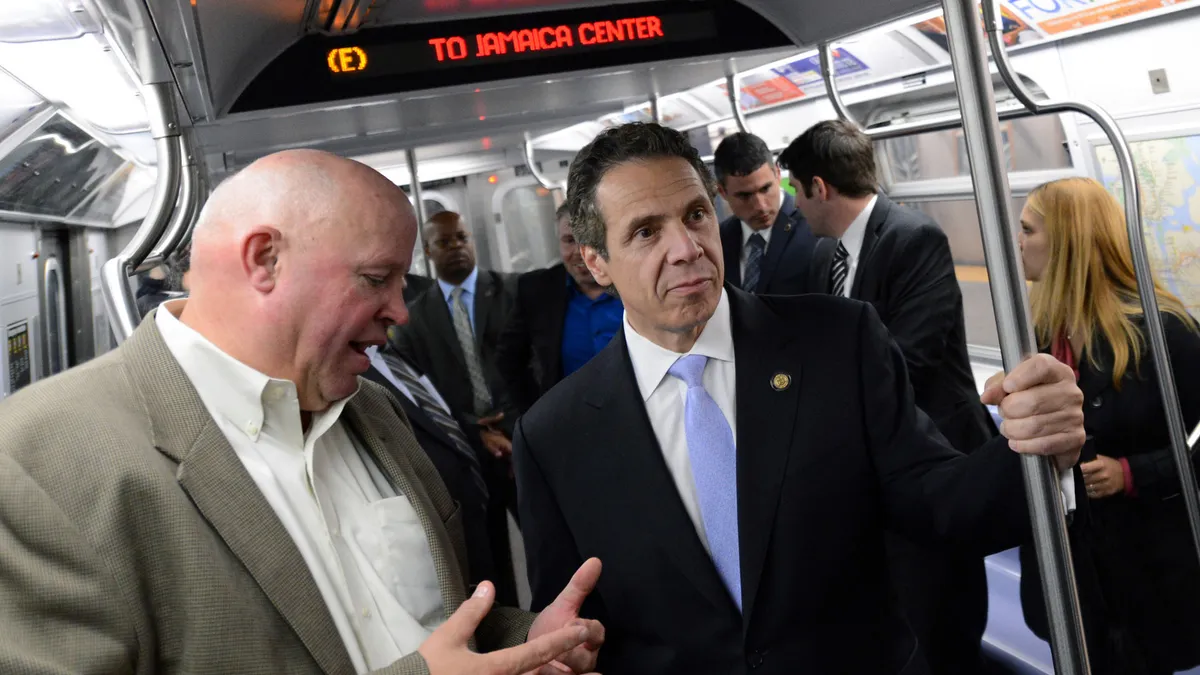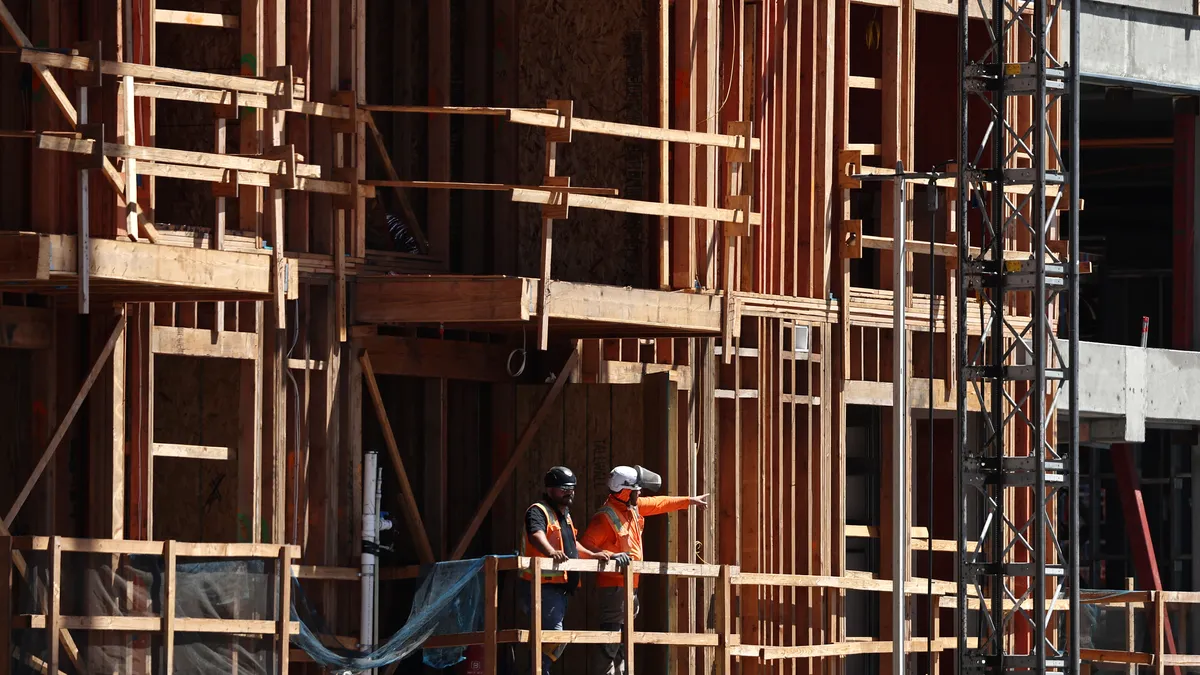UPDATE: Governor Cuomo's office has announced the formation of a six-member New York State Plastic Bag Task Force. The group will review information and proposed solutions from municipalities to develop a "uniform and equitable statewide plan to address New York’s plastic bag problem."
The task force will be led by Basil Seggos, commissioner of the Department of Environmental Conservation. Senator Thomas O'Mara and Assemblyman Steve Englebright, chairs of their respective environmental conversation committees in the state legislature, will serve as co-chairs on the task force. Representatives from the New York State Association of Counties, New York League of Conservation Voters and Food Industry Alliance round out the membership.
While a press release announcing the task force cited the $12.5 million that New York's Department of Sanitation spends on managing bags each year, no mention was made of the city's efforts to institute a 5-cent fee. Instead, the task force's membership and mission has a broader focus to help New York "lead the way in developing a comprehensive statewide solution" on a national level.
Dive Brief:
- Governor Andrew Cuomo has signed a bill that will delay implementation of New York's 5-cent fee on plastic and paper bags until at least 2018, as reported by the New York Daily News.
- In a statement, Cuomo recognized the issue of plastic bag litter but called the city law "deeply flawed." His main objection was that retailers would be allowed to keep the fee, which he called a "bonus to private companies" that is "beyond the absurd." Exemptions for liquor stores, delivery orders and food trucks were also criticized.
- Cuomo announced plans for a statewide task force to draw on the experiences of other cities and states to develop a better solution. Legislative leaders will help appoint co-chairs and the task force will be expected to deliver a report, including proposed legislation, by the end of the year.
Dive Insight:
While Cuomo's statement indicates that a bag policy could eventually be enacted in the city — if not the entire state — this outcome has not been welcomed by supporters of the city's original plan. The law's original co-sponsors pointed out that similar policies in Suffolk and Nassau Counties have been allowed to continue. The state's involvement was called inappropriate in multiple statements from local officials and environmental groups, and Albany legislators have indeed been more active on this issue than many other waste-related items in New York.
The state legislature had been fighting the city law for months, successfully postponing its implementation from October 2016 and voting on bills that would prohibit the city from enacting a packaging ordinance of any kind. This week a small group of legislators proposed a compromise bill that would have given customers an instant 3-cent rebate for bringing reusable bags, but that didn't gain any traction.
Aside from a statewide ban in California that was made official by the passage of Prop 67 last fall, few bag debates have dragged on as long as the one in New York. Originally proposed nine years ago during the administration of former Mayor Michael Bloomberg, this latest version of a bag fee was introduced to the New York City Council in 2014. A compromise reduced the proposed fee from 10 cents to 5 cents and was passed in the tightest vote during this current council session. Mayor Bill de Blasio has also been supportive of the plan and the Department of Sanitation has been promoting details on its website.
In looking at the experiences of other cities and states, the proposed state task force will find a wide range of policies to draw from. New York City isn't allowed to impose the type of tax that could be diverted to an environmental fund, but that policy could be enacted on a state level. Washington, D.C. does divert its bag fee to an environmental fund, though that program's effectiveness has been questioned in the past. Voters in California recently decided against requiring the establishment of a similar fund to accompany their own statewide bag ban. Chicago's new 7-cent fee directs 5 cents to the city and leaves the remainder with the retailer.
Putting this in the hands of a statewide task force and passing a law that delays action at the city level until at least next year ensures that politics will continue to play a role in this discussion. The passage of any statewide legislation in a Republican-controlled state Senate is seen as a long shot at this point. By the time the New York City Council is allowed to take this issue up again in 2018 it will have a new speaker and several new members. Even then, bags may never be restricted entirely, but in the meantime they will continue to clog equipment at material recovery facilities at the same rate as usual.












